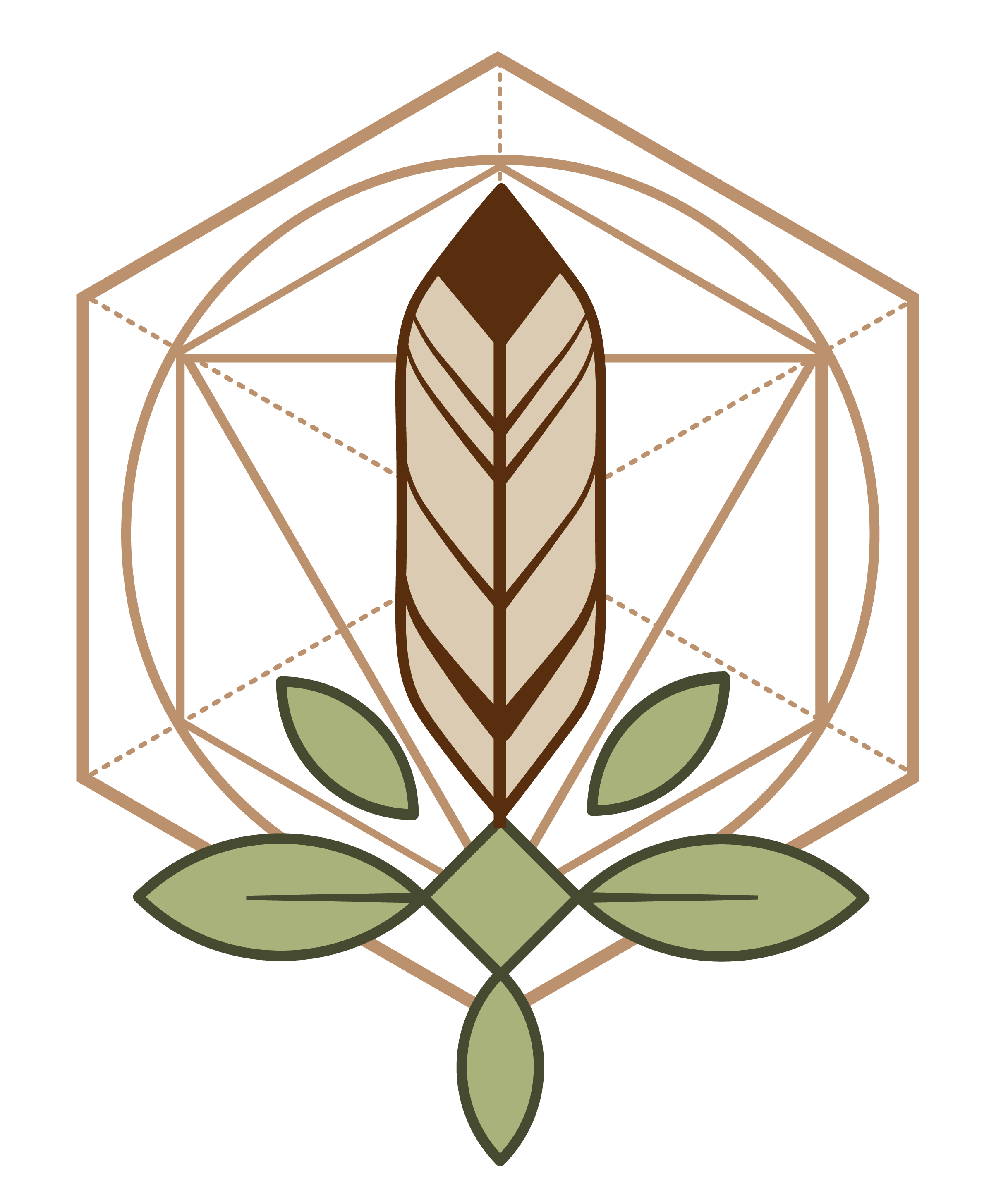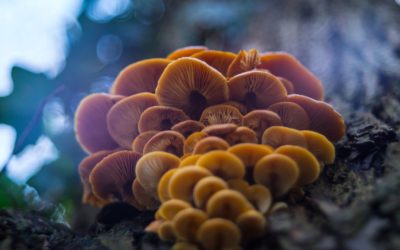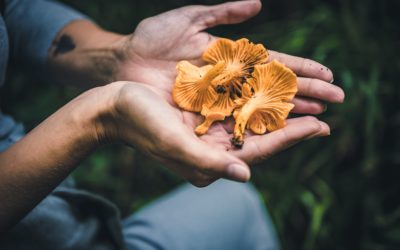MEDIA
Mycotherapy of Cancer: An Update on Cytotoxic and Antitumor Activities of Mushrooms, Bioactive Principles and Molecular Mechanisms of their Action
Mycotherapy is defined as the study of the use of extracts and compounds obtained from mushrooms as medicines or health-promoting agents. The present review updates the recent findings on anticancer/antitumor agents derived from mushroom extracts and their metabolites.
The increasing number of studies in the past few years revealed mushroom extracts as potent antitumor agents. Also, numerous studies were conducted on bioactive compounds isolated from mushrooms reporting the heteropolysaccharides, β-glucans, α-glucans, proteins, complexes of polysaccharides with proteins, fatty acids, nucleoside antagonists, terpenoids, sesquiterpenes, lanostanoids, sterols and phenolic acids as promising antitumor agents. Also, molecular mechanisms of cytotoxicity against different cancer cell lines are discussed in this review. Findings with Antrodia camphorata and Ganoderma lucidium extracts and isolated compounds are presented, as being the most deeply studied previously.
Read full article in the journal: Current Topics in Medicinal Chemistry
Edible Mushrooms: Improving Human Health and Promoting Quality Life
Mushrooms have been consumed since earliest history; ancient Greeks believed that mushrooms provided strength for warriors in battle, and the Romans perceived them as the “Food of the Gods.”
For centuries, the Chinese culture has treasured mushrooms as a health food, an “elixir of life.” They have been part of the human culture for thousands of years and have considerable interest in the most important civilizations in history because of their sensory characteristics; they have been recognized for their attractive culinary attributes. Nowadays, mushrooms are popular valuable foods because they are low in calories, carbohydrates, fat, and sodium: also, they are cholesterol-free. Besides, mushrooms provide important nutrients, including selenium, potassium, riboflavin, niacin, vitamin D, proteins, and fiber.
All together with a long history as food source, mushrooms are important for their healing capacities and properties in traditional medicine. It has reported beneficial effects for health and treatment of some diseases. Many nutraceutical properties are described in mushrooms, such as prevention or treatment of Parkinson, Alzheimer, hypertension, and high risk of stroke. They are also utilized to reduce the likelihood of cancer invasion and metastasis due to antitumoral attributes. Mushrooms act as antibacterial, immune system enhancer and cholesterol lowering agents; additionally, they are important sources of bioactive compounds. As a result of these properties, some mushroom extracts are used to promote human health and are found as dietary supplements.
More than 100 medicinal functions are produced by mushrooms and fungi and the key medicinal uses are antioxidant, anticancer, antidiabetic, antiallergic, immunomodulating, cardiovascular protector, anticholesterolemic, antiviral, antibacterial, antiparasitic, antifungal, detoxification, and hepatoprotective effects; they also protect against tumor development and inflammatory processes [16–19].
Numerous bioactive polysaccharides or polysaccharide-protein complexes from medicinal mushrooms appear to enhance innate and cell-mediated immune responses and exhibit antitumor activities in animals and humans. A wide range of these mushroom polymers have been reported previously to have immunotherapeutic properties by facilitating growth inhibition and destruction of tumor cells. Several of the mushroom polysaccharide compounds have proceeded through clinical trials and are used extensively and successfully in Asia to treat various cancers and other diseases. A total of 126 medicinal functions are thought to be produced by selected mushrooms [37].
Read the full article here on the National Library of Medicine.
The Effect of Mushroom Beta-Glucans on Cancer
Mushrooms have been valued for their health benefits and medicinal effects for centuries. One of the special components found from mushrooms is beta-glucan, which is predominantly composed in the fungal cell wall and is mostly composed of beta-D-glucose. In many researches, beta-glucan effectively stimulates the host immune response to defend against bacterial, viral, fungal, or parasitic infections [1]. Moreover, it is known as biological response modifier since it primarily achieves its disease protective activity through modulating the host immune system [2]. The stimulation of beta-glucan to macrophages, neutrophils, and natural killer (NK) cells is proved by binding to the receptor (dectin-1) of these cells and modulates the systems [3, 4]. In clinical applications, beta-glucan is usually used as an adjuvant to enhance the effectiveness of the medicine [5, 6]. To sum up the experimental and clinical results, the potential anticancer activity from beta-glucan has been proven, and thus beta-glucan has been gaining prominence in clinical research during the past few years [6, 7].
-US National Library of Medicine
Mycotherapy of Cancer: An Update on Cytotoxic and Antitumor Activities of Mushrooms, Bioactive Principles and Molecular Mechanisms of their Action
Mycotherapy is defined as the study of the use of extracts and compounds obtained from mushrooms as medicines or health-promoting agents. The present review updates the recent findings on anticancer/antitumor agents derived from mushroom extracts and their metabolites.
The increasing number of studies in the past few years revealed mushroom extracts as potent antitumor agents. Also, numerous studies were conducted on bioactive compounds isolated from mushrooms reporting the heteropolysaccharides, β-glucans, α-glucans, proteins, complexes of polysaccharides with proteins, fatty acids, nucleoside antagonists, terpenoids, sesquiterpenes, lanostanoids, sterols and phenolic acids as promising antitumor agents. Also, molecular mechanisms of cytotoxicity against different cancer cell lines are discussed in this review. Findings with Antrodia camphorata and Ganoderma lucidium extracts and isolated compounds are presented, as being the most deeply studied previously.
Read full article in the journal: Current Topics in Medicinal Chemistry
Edible Mushrooms: Improving Human Health and Promoting Quality Life
Mushrooms have been consumed since earliest history; ancient Greeks believed that mushrooms provided strength for warriors in battle, and the Romans perceived them as the “Food of the Gods.”
For centuries, the Chinese culture has treasured mushrooms as a health food, an “elixir of life.” They have been part of the human culture for thousands of years and have considerable interest in the most important civilizations in history because of their sensory characteristics; they have been recognized for their attractive culinary attributes. Nowadays, mushrooms are popular valuable foods because they are low in calories, carbohydrates, fat, and sodium: also, they are cholesterol-free. Besides, mushrooms provide important nutrients, including selenium, potassium, riboflavin, niacin, vitamin D, proteins, and fiber.
All together with a long history as food source, mushrooms are important for their healing capacities and properties in traditional medicine. It has reported beneficial effects for health and treatment of some diseases. Many nutraceutical properties are described in mushrooms, such as prevention or treatment of Parkinson, Alzheimer, hypertension, and high risk of stroke. They are also utilized to reduce the likelihood of cancer invasion and metastasis due to antitumoral attributes. Mushrooms act as antibacterial, immune system enhancer and cholesterol lowering agents; additionally, they are important sources of bioactive compounds. As a result of these properties, some mushroom extracts are used to promote human health and are found as dietary supplements.
More than 100 medicinal functions are produced by mushrooms and fungi and the key medicinal uses are antioxidant, anticancer, antidiabetic, antiallergic, immunomodulating, cardiovascular protector, anticholesterolemic, antiviral, antibacterial, antiparasitic, antifungal, detoxification, and hepatoprotective effects; they also protect against tumor development and inflammatory processes [16–19].
Numerous bioactive polysaccharides or polysaccharide-protein complexes from medicinal mushrooms appear to enhance innate and cell-mediated immune responses and exhibit antitumor activities in animals and humans. A wide range of these mushroom polymers have been reported previously to have immunotherapeutic properties by facilitating growth inhibition and destruction of tumor cells. Several of the mushroom polysaccharide compounds have proceeded through clinical trials and are used extensively and successfully in Asia to treat various cancers and other diseases. A total of 126 medicinal functions are thought to be produced by selected mushrooms [37].
Read the full article here on the National Library of Medicine.
The Effect of Mushroom Beta-Glucans on Cancer
Mushrooms have been valued for their health benefits and medicinal effects for centuries. One of the special components found from mushrooms is beta-glucan, which is predominantly composed in the fungal cell wall and is mostly composed of beta-D-glucose. In many researches, beta-glucan effectively stimulates the host immune response to defend against bacterial, viral, fungal, or parasitic infections [1]. Moreover, it is known as biological response modifier since it primarily achieves its disease protective activity through modulating the host immune system [2]. The stimulation of beta-glucan to macrophages, neutrophils, and natural killer (NK) cells is proved by binding to the receptor (dectin-1) of these cells and modulates the systems [3, 4]. In clinical applications, beta-glucan is usually used as an adjuvant to enhance the effectiveness of the medicine [5, 6]. To sum up the experimental and clinical results, the potential anticancer activity from beta-glucan has been proven, and thus beta-glucan has been gaining prominence in clinical research during the past few years [6, 7].
-US National Library of Medicine



